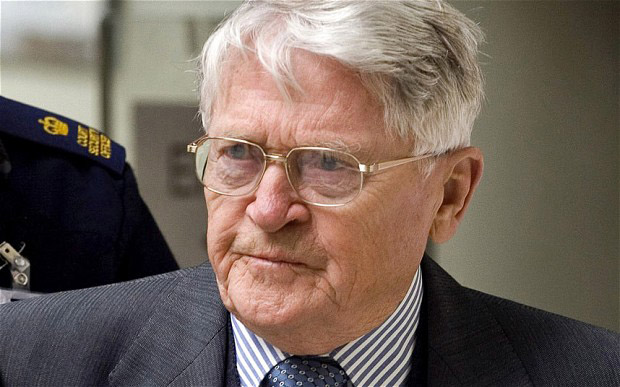Australia/Israel Review
The Last Word: Crime Without Punishment
Aug 27, 2012 | Jeremy Jones

Jeremy Jones
At the time of writing, Australians are engaged in a vibrant, vigorous debate on what we should do about, to and for the men, women and children who seek asylum and refuge in Australia.
While it is sometimes difficult to disentangle the threads interwoven into the arguments for contending positions, an important issue is what type of person Australians think should be welcome.
In the period of mass post-war immigration, Australian governments also had ideas regarding desirable characteristics for immigrants.
On the matters of race and ethnicity, I feel it is fair to say that modern Australia is not proud of the period of the “White Australia Policy”.
There were also Cold War concerns over supporters of totalitarian communism. To a degree, political/religious extremism has today been substituted for the perhaps simpler matter of support for one single family of ideologies.
One thing which has not changed is abhorrence at the notion that fugitives from justice could come to Australia and live here freely, avoiding any consequence for their crimes.
It is now known that amongst the hundreds of thousands of migrants to Australia who arrived from southern, central and eastern Europe, especially from countries which were under post-war communist control, were hundreds, if not thousands, of individuals who committed crimes against humanity.
They included figures close to the centres of power in the Balkan states, leaders and members of Nazi killing units from the Baltic region and individuals who brutally murdered their Jewish neighbours under the cover and authority of Nazism in the Central European theatre.
Australians learnt there was a problem in the wake of an American case, begun in 1984, in which an alleged Nazi war criminal nominated Australia as the place he wished to be deported to, once it was established that his involvement in the perpetration of the Shoah meant he could no longer live in the US.
The groundbreaking journalism and historic research of Mark Aarons, supplemented by journalists and historians such as Suzanne Rutland, exposed the extent of the issue – which included the turning of blind eyes, abrogation of morality and complicity in a sinister and cynical process which allowed some Nazi war criminals not only to live in this country, but to thrive.
More than 40 years after the defeat of Nazism, the Hawke Government overturned the previously articulated policy that Australia was a place in which you could not merely build a new life but could escape consequences for past misdeeds and crimes.
A specialist unit was established within the Australian Federal Police to compile briefs to allow for the prosecution of those Nazi war criminals who were still alive and against whom persuasive cases could be established.
Anomalies in immigration law were amended, new principles asserted and some prosecutions commenced.
The historical record was rewritten to record the truth – and the sanitised account of what was shameful behaviour is now public and well-known.
Further, some of the criminals who had been sleeping soundly each night in Australian homes, believing that they had escaped (earthly) justice, would have lived their final years forever in fear of being held to account.
Tragically, with a series of trials ending without prosecutions, with Nazi murderers avoiding trials due to infirmity or old age, with each and every tactic used to avoid and delay prosecution or extradition, no person who came to Australia has borne punitive consequences.
With the decision in August by the High Court of Australia to prevent extradition to Hungary of Charles Zentai, the eyes of all concerned with the fate of criminals against humanity were turned towards Australia.
What they would have seen was a country with a political and legal system which was put to the test – and failed.
Let us all hope that the lessons learned from this will, at a minimum, lead to a reform which means that we will never again accept this utterly unacceptable situation.
Tags: Australasia






